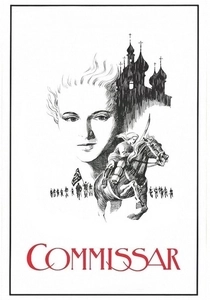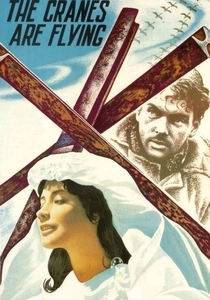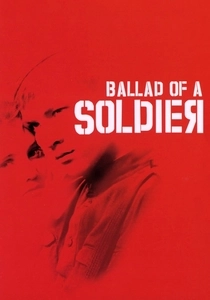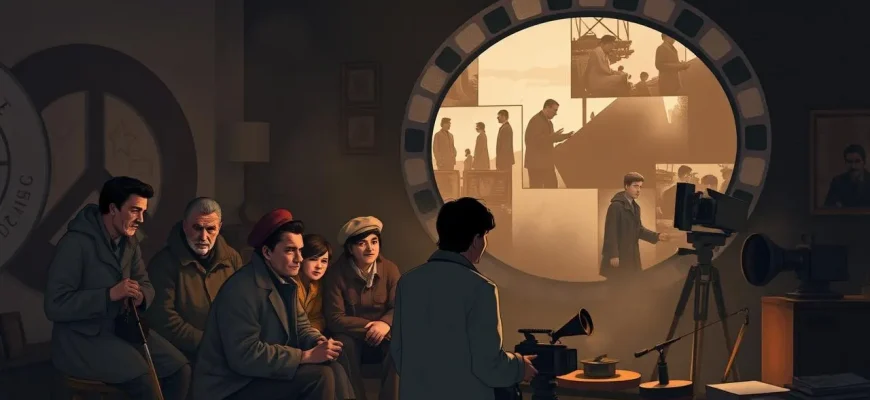Soviet cinema has always been rich with narratives that delve into the complexities of human nature and societal structures. This curated selection of films focuses on the theme of outcasts - individuals who, for various reasons, find themselves on the fringes of society. These stories not only provide a window into the Soviet era's cultural and political landscape but also resonate with universal themes of alienation, identity, and the quest for belonging. Here are ten Soviet films that explore the lives of those who are often overlooked, offering both poignant storytelling and a deeper understanding of human resilience.

The Commissar (1967)
Description: A female commissar during the Russian Civil War finds herself living with a Jewish family, becoming an outcast due to her military role and the family's societal status.
Fact: The film was banned in the Soviet Union for 20 years due to its sensitive portrayal of Jewish life.
 Watch Now
Watch Now 
The Cranes Are Flying (1957)
Description: This poignant tale of love and loss during WWII features a heroine who becomes an outcast after her fiancé goes missing in action, exploring themes of societal judgment and personal endurance.
Fact: It was the first Soviet film to win the Palme d'Or at the Cannes Film Festival.
 30 Days Free
30 Days Free 
The Ballad of a Soldier (1959)
Description: A young soldier, granted a brief leave, becomes an outcast in his own country as he tries to help others, showcasing the human side of war.
Fact: The film was nominated for an Academy Award for Best Original Screenplay.
 30 Days Free
30 Days Free 
The Ascent (1977)
Description: Set during World War II, this film follows two Soviet partisans who become outcasts in their own land as they struggle to survive in the harsh winter, highlighting themes of betrayal and sacrifice.
Fact: The film won the Golden Prize at the 10th Moscow International Film Festival and was nominated for an Academy Award for Best Foreign Language Film.
 30 Days Free
30 Days Free 
The Irony of Fate (1975)
Description: A man, through a series of coincidences, ends up in Leningrad instead of Moscow, becoming an outcast in a city where he doesn't belong, exploring themes of identity and fate.
Fact: It's a New Year's Eve tradition in Russia to watch this film.
 30 Days Free
30 Days Free 
The Mirror (1975)
Description: This semi-autobiographical film by Tarkovsky explores the life of a man reflecting on his past, where he often feels like an outcast due to his introspective nature.
Fact: The film uses a non-linear narrative structure, making it a challenging but rewarding watch.
 30 Days Free
30 Days Free 
The Forty-First (1956)
Description: A Red Army sniper, tasked with executing a White officer, finds herself in a moral and emotional conflict, becoming an outcast within her own ranks.
Fact: The film was remade in 1927, but the 1956 version is considered more faithful to the original novel.
 30 Days Free
30 Days Free 
The Thief (1997)
Description: Set in post-WWII Soviet Union, this film tells the story of a young boy and his mother who fall under the spell of a charming but deceitful man, making them societal outcasts.
Fact: It was nominated for the Golden Globe for Best Foreign Language Film.
 30 Days Free
30 Days Free 
The Return (2003)
Description: Two brothers embark on a mysterious journey with their long-lost father, who is an outcast in their lives, exploring themes of family and identity.
Fact: The film won the Golden Lion at the Venice Film Festival.
 30 Days Free
30 Days Free 
The Edge (2010)
Description: A man, after losing his job and family, becomes an outcast in society, embarking on a journey of self-discovery and redemption.
Fact: The film was Russia's submission for the Academy Award for Best Foreign Language Film.
 30 Days Free
30 Days Free 








